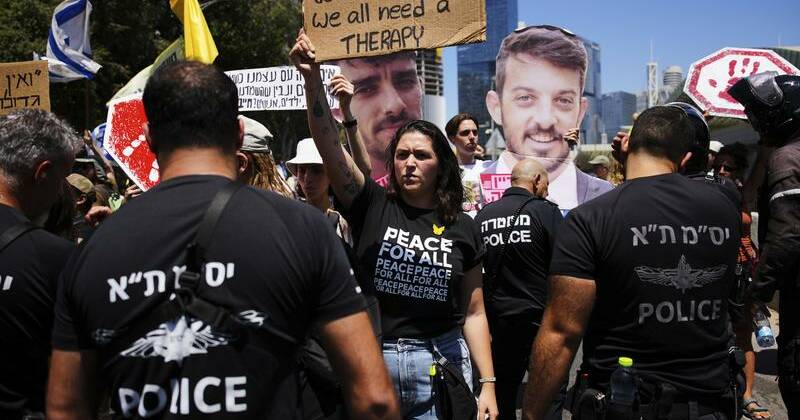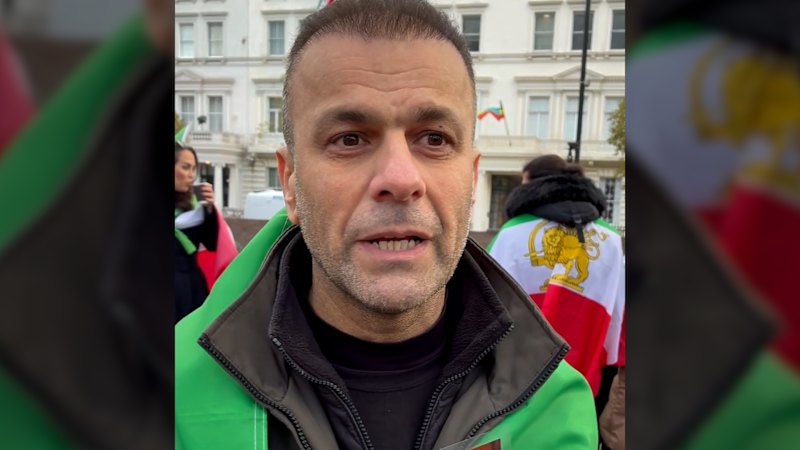
Thousands of Israelis participated in a nationwide strike, demanding an end to the ongoing war and urging Prime Minister Benjamin Netanyahu to negotiate with Hamas for the release of hostages held in Gaza. The protests occurred across the country, with demonstrators waving Israeli flags and displaying photographs of hostages. Whistles, horns, and drums filled the air as some participants blocked major roads, including the crucial route between Jerusalem and Tel Aviv.
In a poignant moment at a public square in Tel Aviv, Anat Angrest, mother of hostage Matan Angrest, emphasized the importance of life. “Today, everything stops to remember the highest value: the sanctity of life,” she stated. Ahead of the protests, some businesses and institutions allowed employees to join the strike initiated by the families of the hostages. While many businesses closed, numerous others remained operational on what is typically a working day in Israel. Schools were on summer recess, so they were not impacted by the demonstrations. A significant rally was scheduled for later that evening in Tel Aviv.
Israeli police reported that 38 demonstrators were detained as tensions escalated, with some protesters clashing with officers while blocking roads. Opposition leader Yair Lapid, who attended one of the rallies, expressed solidarity with the demonstrators. “The only thing that strengthens the country is the wonderful spirit of the people who are going out from home today for Israeli solidarity,” he posted on social media platform X.
In response to the protests, Prime Minister Netanyahu addressed his cabinet, asserting that calls to end the war without defeating Hamas only strengthened the group’s position and delayed the release of hostages. “They are also ensuring that the horrors of October 7 will repeat themselves over and over again,” he remarked, referencing the date of the initial Hamas-led attack on Israel that ignited the conflict. Netanyahu reiterated his government’s commitment to an offensive aimed at seizing Gaza City, one of the last major areas not under Israeli control.
This military decision has faced considerable backlash from the Israeli public and families of hostages, who fear that an escalation could endanger their loved ones. Currently, there are approximately 50 hostages believed to be held by militants in Gaza, with Israeli officials estimating that around 20 are still alive. Since the conflict began nearly two years ago, most hostages released have been freed through diplomatic negotiations. Efforts for a ceasefire that could facilitate further hostage releases collapsed in July.
Hamas has stated that it would only consider releasing the remaining hostages if Israel agrees to halt military operations. Conversely, Netanyahu has maintained that Hamas cannot remain in power. The Israeli government has faced intense criticism domestically and internationally, including from several European allies, regarding the military’s intention to capture Gaza City.
In a statement on Sunday, Hamas condemned the plan as “criminal,” warning that it would lead to the displacement of hundreds of thousands of people. The humanitarian toll of the conflict is stark, with local health officials in Gaza reporting that more than 61,000 Palestinians have been killed since the onset of hostilities. On the same day, it was reported that at least 29 Palestinians lost their lives in the latest violence. The conflict has also resulted in approximately 1,200 Israeli casualties and 251 individuals taken into Gaza during the October attack, alongside over 400 Israeli soldiers killed in the ongoing military actions.
The protests reflect deep divisions within Israeli society regarding the approach to the conflict and the fate of hostages, highlighting the urgent need for a resolution. As the situation continues to evolve, the calls for peace and the safe return of captives remain at the forefront of public sentiment.






